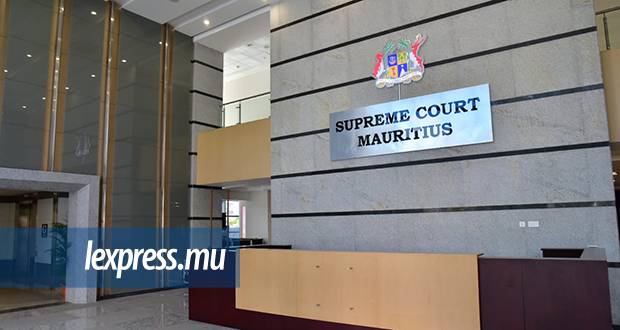Publicité
The BAI Syndrome & Healing the Country Part 2 – Rogue Circles of Interests
Par
Partager cet article
The BAI Syndrome & Healing the Country Part 2 – Rogue Circles of Interests

The financial Service Commission (FSC) is the regulator of financial services (e.g. insurance companies, ex BAI). Over the period 2010-2014, the FSC spent close to Rs 11.5 million in Board Fees, Rs 800 million in Salaries and Allowances, Rs 50 million in Legal Fees and Rs 85 million in very effective Training and Conferences, more than half of it overseas, while the Bank of Mauritius (BoM) spent Rs 1.5 billion in Staff Salaries and Rs 95.2 million in Directors’ Remunerations. The Financial Reporting Council (FRC) is governed by the Financial Reporting Act (FRA) and is the principal regulator of the accounting and auditing profession.
Among other things, its functions include the following: “to monitor the truth and fairness of financial reporting”, “to conduct practice reviews of licensed auditors” and “to enforce compliance with this Act and the rules of the Council by conducting investigations and where appropriate, impose sanctions on licensed auditors, public interest entities and officers of such entities”. The graphs (see below) show some trends. The salaries and benefits kept on rising while the crisis had been ripening. Legal fees soared before the crisis! This is symptomatic of government owned institutions from Air Mauritius, to ICTA, EOC, the WMA, etc.



The Annual Reports of the FRC indicate that since the year 2008, nearly 300 engagement files and 195 licensed auditors went through Audit Practice Reviews. The Annual Reports of 858 entities were also reviewed since 2009. In 2013, 51 and in 2014, 26 Annual Reports in the Banking, Insurance and Finance sector were reviewed. Still they could not catch the deceptive practices referred to by the Fist Deputy Governor of the BoM. Did they really want to find anything?
A handful of nTan Advisory consultants uncovered and dissected deceptive transactions over just a few weeks of work! Among others, the board of FRC comprised the First Deputy Governor of the BoM (since 2006), the CEO of the FSC and the Chairman of MIPA. Within the FRC, there are the Audit Practice Review Panel (APRP) and the Financial Reporting Monitoring Panel (FRMP).
For many years each panel comprised the regulator and auditor of the BAI Group, the FSC and KPMG respectively. Looking at the annual reports of the BoM and the FRC, it can be verified that the same senior partner of KPMG who has been signing the audit reports of the BoM has also been acting as a panel member of the Audit Practice Review Panel of the FRC continuously since 2010! It becomes paramount to know whether the audit files of the BoM and BAI companies were reviewed by the FRC. What were the findings and the measures taken since 2010? We need also to know whether and, if so, how the auditors of the panels were reviewed by the FRC, and the findings since 2008. This post-mortem work would be important for the healing process because these interconnected organisations are at the heart of our financial systems. Figure 1 depicts the system where the institutions and a group of individuals have been operating in a self-perpetuating cozy network. There are three network species. There are individuals who are “hydra board members”, forming part of several such networks and some are “serial board members”. In the FSC and FRC for example, there have been continuous board tenures of nine to ten years. There are also “board hoppers”, as they hop from one to another. The responsibilities and liabilities are obviously proportional to tenure.

How could the principles of Independence and Objectivity be followed within this network? Under these circumstances, it would be surrealist to expect them to catch the deceptive practices and to self-impose sanctions for failing to do so! And what could have led to this state of affairs? A sense of indispensability or that effortless sense of superiority? The ACCA (Association of Chartered Certified Accountants) in its “Guidance On Ethical Matters For Members In Business” defines “self-review threats” as “business decisions or data being subject to review and justification by the same person responsible for making those decisions or preparing the data” – which would be the case when an auditor is reviewing its own audit practices, or when a regulator is reviewing the financial reporting it monitors/ uses for its regulatory work!
The ACCA also defines the “familiarity threat” as “long association with business contacts influencing business decisions” – which arises when there are long or continuous tenure-ships. Both of these threats were present in the network shown in Figure 1. It is unimaginable that licensed accountants at the very top levels of the organisations were not aware of these ethical threats and that they have done nothing about them! In the light of the nTan Report findings and in the absence of replies/ explanations from the targeted organisations in reference to Schedule 1 of the report (silence is consent), one cannot escape the conclusion that the individuals in these institutions who are expected to regulate the system, to teach and defend the Code of Ethics have cynically betrayed it and led to deregulation of the system and, indeed, to the crisis! This is how our economy has been put in peril.
The severity of groupthink in the accountancy sector of Mauritius and the institutional failure is extraordinarily captured in MIPA’s 2015 Annual Report which states that “this year (2014-2015) has been marked by few events in the Mauritian economy”!! The report makes men- tion of eight complaints received in 2015 and nothing about actions taken, and still nothing in its 2016 report! Astounding.

‘‘These crises prove that successive governments are wrong to blindly trust the Circles of Interests whose members they appoint.’’
The FRA Section 21 stipulates: “The Enforcement Panel shall consider any findings and recommendations referred to it by the Financial Reporting Monitoring Panel, the Audit Practice Review Panel, or the Council and shall, on the basis of the findings and recommendations determine the appropriate action to be taken.” The composition of the Enforcement Panel of the FRC is not revealed! During the year 2014, only five cases were reviewed by this panel. According to Section 29 of the FRA, the Annual Report for the year 2015 should have been submitted four months after close of the financial year, that is, by April 2016. The long overdue Annual Report should detail the actions taken by the Enforcement Panel as a result of the nTan Report. Talking of “Good Governance” for the moment is like offering something broken tucked inside great Wrapping! There are many things to be repaired and replaced in the institutions...to start with the FRC.
In the network of regulatory bodies as can be seen in Figure 2 (see below), there was a Circle of Interest (COI) operating for many years which is the root cause of the BAI crisis. The existing laws and regulations were enough to abort the “Mega Ponzi Scheme” and the crisis. The BAI Group crisis was even raised by the International Monetary Fund and subject to Parliamentary Questions.
However, just like kids playing on a merry go round, carefree about the problems of the world and asking more ice cream between turns, the members of the Circle of Interests kept turning it round and round recklessly for many years, watching the crisis grow... The investors have been misled, pensioners robbed, clients’ businesses have collapsed and the government trapped. In what/whose interests have they been working? Auditors/board/ panel/committee members of regulatory bodies paid (from all directions!) to check and control, to speak-up, to correct and to apply the existing laws and regulations when Codes of Ethics are violated and when limits are trespassed just kept pretending.
They never played their roles with integrity because they are never held accountable. Only when they will start being held accountable, will they protest vehemently and/or resign in face of unethical decisions or practices – this is what is expected from them. Until then however, “Above All Integrity is Last and Least”. The individuals forming the Circle of Interests are the only winners, all the rest are losers, as the graphs show!
These Circles of Interests operate in other sectors as revealed recently by a number of scandals. The most recent are the Heritage City and the Air Mauritius crises. Every crisis is a convergence of a series of factors, actions and inactions. For example the Prime Minister revealed that no issue on the Heritage City project was ever raised earlier. For about one and a half years the various committees approved everything about the project... At Air Mauritius over eight months, a number of factors converged for the crisis – like the unprecedented recruitment of a person at “Top Management” level with a record of litigations with the company and even then, with unauthenticated qualifications when original certificates are scrutinized for much lower levels.
These crises prove that successive governments are wrong to blindly trust the Circles of Interests whose members they appoint. The Circles of Interests, in trying initially to please (that is what they believe to be their purpose) the government or some part of it, start overdoing, develop their own logic and groupthink, become impervious to public opinion and with the help of the three network species, they in fact become self-sustaining rogue Circles of Interests for their own sake. They outlive governments and Prime Ministers. They thrive because of the BAI syndrome. The prophecy is already being played out. Until we heal the country of the BAI (Bad Accountability and Integrity) syndrome, many other rogue Circles of Interests which operate undetected so far and new ones which will form, would transform Mauritius into a rogue nation. In Part 3, we will explore the most effective cures to heal the country of the BAI syndrome.
Editor’s note: We are indebted to our contributor, OBSERVOR, who quotes Ron Patterson who stated, after the Enron scandal, that good financial reporting requires: 1. Management with integrity 2. Auditors with a backbone 3. Regulators with clout 4. Users with perception
Publicité
Les plus récents






